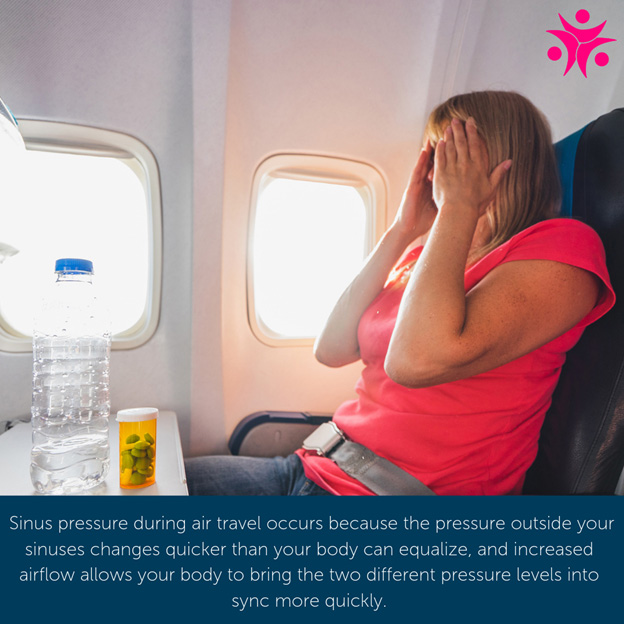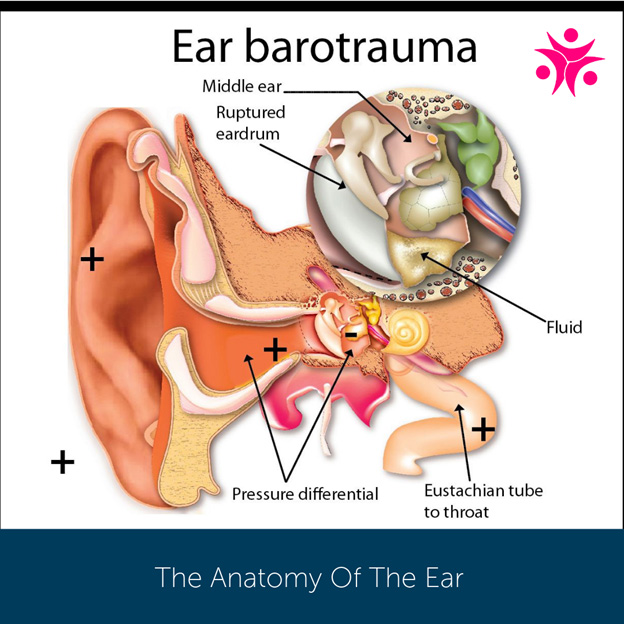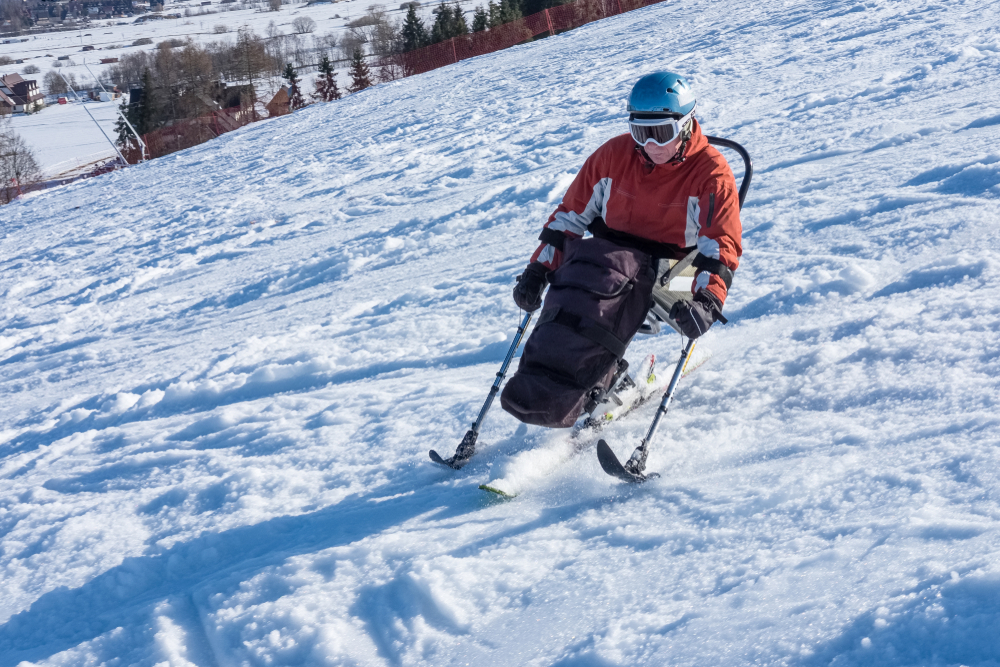Make an Appointment
During the winter, it’s nice to daydream about tropical holidays and carefree beach days. During the summer, we might yearn for trips out to the mountains to bask in the simple life of off-the-grid cabins and nights by the fire.
We always want what we can’t have right? All we’re saying is, we all deserve a holiday now and again, but they’re not always a simple experience when going to and from.
Most people have experienced sinus pain or ear pain when flying and travelling. Whether you’ve got a cold or the flu just before a holiday or you’re particularly sensitive when it comes to sinus pain and flying, it’s never a comfortable situation.
Still, that’s no reason to just grin and bear it. After all, you’ve probably been saving up for months to take this overseas holiday. So, how can we alleviate some of that sinus pain after flying?

The discomfort or pain you’re feeling is what happens when the air pressure in your sinuses or your inner ear is different from the air pressure outside of your body.
During activities like flying, driving up a mountain, or scuba diving, your body is experiencing the change in air pressure during ascent and descent, leaving you feeling all out of whack.
Here, we’ll be going over what barotrauma is, what some of the causes of barotrauma are, and how we can prevent ear pain while flying to have a more enjoyable travel experience.
What is Ear Barotrauma?
Barotrauma typically affects the middle ear. The middle ear contains a pocket of air that is especially sensitive to changes in air pressure outside the body. When flying, driving through the mountains, or going scuba diving, your ears can begin the hurt due to this pressure change.
Common symptoms of ear barotrauma are:
- Pain or discomfort in your ears
- A feeling like your ears are stuffed
- Temporary hearing loss
- Dizziness or vertigo
- Tinnitus (ringing in the ears)
- In rare cases, bleeding from the ear
If you’re experiencing severe ear pain when flying, adults should contact their doctor if it lasts more than a few hours.

Image reference: https://www.pinterest.com.au/pin/440578776022810072/?lp=true
What is Sinus Barotrauma?
Your sinuses are air-filled pockets in the bone surrounding your nose. When there is a difference in the air pressure in these pockets from the air pressure outside your body, you can experience sinus barotrauma.
Common symptoms of sinus barotrauma are:
- Pain near your cheekbones and above your eyes
- Headaches
- Sinus pressure
- Toothaches
- Nosebleeds
- If you already have a cold or nasal congestion, sinus barotrauma can lead to a severe sinus infection
Again, if you continue to experience severe sinus pain after flying for more than a few hours, it’s best to consult your doctor.
Risk Factors Causing of Barotrauma
We already know that barotrauma is caused by air pressure within your ears or sinuses differing from the air pressure outside your body. But there can be other external risk factors that may increase your chances of experiencing barotrauma.
Risk factors that may cause sinus and ear pressure pain after flying include:
- Smoking
- Obstructions in the ear
- Holding your breath while diving
- Dehydration
- Obesity
- Hay fever (allergies) or a cold resulting in nasal congestion
Prevention Tips
So, how do we stop ear pain when flying? After all, you can’t leave Australia without hopping on an aeroplane. The good news is, there are some precautions you can take to make sure your next holiday is as enjoyable as possible.
Here are 7 tips for sinus barotrauma and how to reduce ear pain when flying:
- Take a decongestant pill or use nasal spray before the flight.
- Get filtered earplugs which help to gradually equalize the air pressure against your middle ear.
- During the flight, relieve pressure by sucking on lollies, chewing gum, yawning, breathing with your mouth open, or pinching your nostrils while gently breathing through your nose.
- Avoid sleeping during takeoff or landing to make sure you’re swallowing enough.
- Have babies suck on bottles or dummies during takeoff and descent.
- Be in good health before you travel.
- If possible, postpone your flight if you have a cold or you’re dealing with hay fever and are congested.
Overall, barotrauma is more or less unavoidable but these prevention tips can help make ear pain and flying more bearable. Plus, it’s important to take care of our bodies every day to lessen the symptoms even further.
That means not smoking, exercising regularly, and preventing sickness (insofar as we’re able) with a healthy diet and adequate rest.
Date Published: Monday, August 5, 2019
Need to get into direct contact with ur Client Services team? We're all ears. Call our team directly on 1300 731 733



